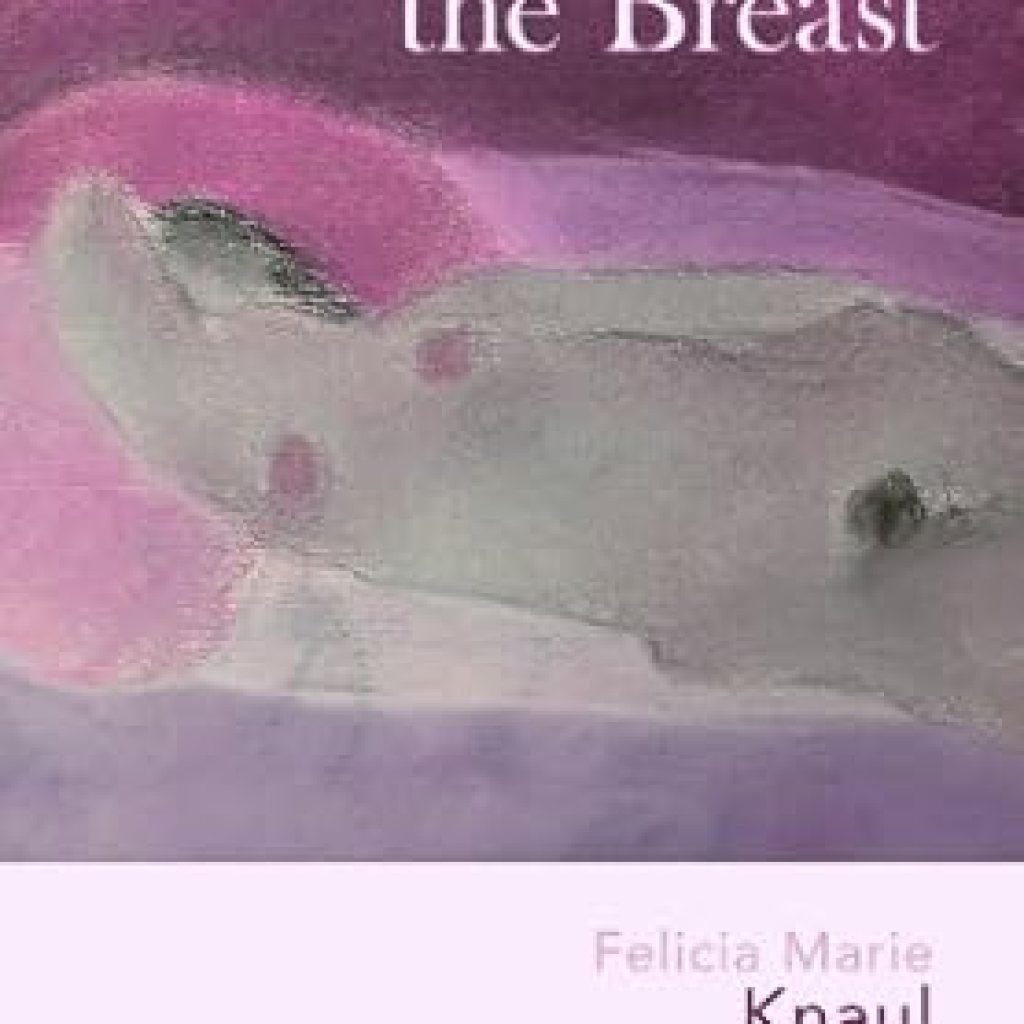Discover the heartfelt and powerful narrative in “Beauty without the Breast” by Felicia Knaul, an essential read for anyone touched by breast cancer. This compelling book intertwines Knaul’s personal battle with breast cancer and her extensive experience in health and social development across Latin America, shedding light on the stark realities that many women face. It’s not just a story of survival; it’s a call to action against the stigma, discrimination, and healthcare disparities that persist in low and middle-income countries.
Knaul’s journey resonates deeply, as she shares striking data on breast cancer—one of the leading causes of death among young women in developing nations. Through her initiative, Tómatelo a Pecho, she advocates for awareness and access to healthcare, making this book not only a personal memoir but also a vital resource for promoting equity in global health. With moving letters from her husband, Dr. Julio Frenk, interwoven throughout, this book captures the essence of resilience and community support in the face of adversity.
Beauty without the Breast (Women, Health, and Equity Book 1)
Why This Book Stands Out?
- Personal and Professional Insight: Felicia Knaul shares her dual perspective as both a breast cancer survivor and an economist, providing a unique blend of personal narrative and professional analysis.
- Global Context: The book sheds light on the stark contrasts faced by women around the world, especially in low and middle-income countries, highlighting the cancer divide and the urgent need for health equity.
- Community and Family Focus: Knaul emphasizes the pivotal role of men, family, and community in supporting women through the challenges of breast cancer, offering a holistic view of the issue.
- Data-Driven Approach: With compelling statistics and evidence, the book underscores breast cancer as a leading cause of death among young women in developing nations, driving home the importance of awareness and access to care.
- Inspirational Initiatives: The narrative includes the launch of Tómatelo a Pecho, a program dedicated to promoting breast cancer awareness and healthcare access in Mexico, showcasing actionable solutions.
- Emotional Resonance: Knaul’s poignant letters from her husband, Dr. Julio Frenk, add a deeply personal touch, capturing the emotional journey of diagnosis and treatment.
Personal Experience
As I delved into the pages of Beauty without the Breast, I found myself not just reading, but connecting deeply with Felicia Knaul’s poignant narrative. Her journey through the complexities of breast cancer is one that resonates on so many levels, reflecting not only her personal battles but also the collective struggles faced by women around the globe. It’s a story that is both heartbreaking and inspiring, making it an essential read for anyone who has faced illness, stigma, or inequity in their lives.
While I may not have experienced breast cancer personally, Knaul’s account brought forth a wave of relatable emotions. Many of us have encountered moments of vulnerability, whether through our health, the health of loved ones, or the societal pressures that often accompany such experiences. Here are some reflections that might resonate with you:
- Empathy for Others: Knaul’s exploration of the stigma and discrimination surrounding breast cancer made me think about the many individuals in my own life who have faced health challenges. It reminded me how important it is to approach these situations with empathy and understanding.
- Awareness of Global Health Disparities: The statistics she shares about women in low and middle-income countries opened my eyes to the harsh realities many face. It’s a call to action that urges us to think beyond our borders and consider how we can contribute to a more equitable world.
- The Power of Community: Knaul emphasizes the role of men, family, and friends in supporting women through their journeys. This resonated with my own experiences of how community can uplift and empower individuals during their toughest times.
- Personal Reflection: Reading her letters with Dr. Julio Frenk, which are interwoven throughout the book, made me reflect on the importance of communication and connection in relationships, especially during times of crisis.
Through Knaul’s writing, I felt a sense of shared humanity—a reminder that while our struggles may vary, the emotions of fear, hope, and resilience unite us all. This book is more than just a memoir; it’s a profound exploration of what it means to navigate health challenges, and it invites readers to engage with these important conversations in their own lives.
Who Should Read This Book?
If you’re someone who is navigating the complexities of breast cancer—whether as a patient, a caregiver, or a health advocate—then Beauty without the Breast is a must-read for you. This book is not just a personal story; it’s a powerful exploration of the broader implications of breast cancer on women, particularly in low and middle-income countries. Here’s why this book is perfect for you:
- Patients and Survivors: If you’ve been diagnosed with breast cancer or are currently in treatment, Knaul’s candid account will resonate deeply. Her journey is filled with insights that can provide comfort and understanding as you navigate your own path.
- Caregivers and Family: For those supporting loved ones through their cancer journey, this book offers a unique perspective on the emotional and practical challenges faced by both patients and their families.
- Health Professionals: Doctors, nurses, and public health advocates will find valuable data and case studies that underscore the importance of equitable healthcare access and the societal factors influencing breast cancer outcomes.
- Advocates for Women’s Health: If you’re passionate about health equity and social justice, Knaul’s work highlights critical barriers that women face and inspires action toward improving healthcare systems.
- Anyone Interested in Global Health: This book is a compelling read for those curious about the global disparities in health care, particularly concerning women’s health issues.
By sharing her personal narrative alongside powerful statistics and a call to action, Felicia Knaul invites readers to reflect on their own experiences with health and illness. This book is not just about cancer; it’s about resilience, community, and the fight for better health equity for all women. Don’t miss out on the opportunity to explore this essential narrative that bridges personal and global health conversations.
Beauty without the Breast (Women, Health, and Equity Book 1)
Key Takeaways
Beauty without the Breast by Felicia Knaul offers profound insights into the personal and societal challenges surrounding breast cancer, particularly in low and middle-income countries. Here are the key points that make this book a valuable read:
- Personal Narratives: Knaul intertwines her own breast cancer journey with broader global health issues, providing a relatable and humanizing perspective.
- Global Health Equity: The book highlights the disparities women face in accessing healthcare, emphasizing the need for equity in health systems worldwide.
- Stigma and Discrimination: Knaul addresses the stigma associated with breast cancer, shedding light on how it affects women’s treatment and recovery in different cultural contexts.
- Community Involvement: The role of family, men, and community support is examined as a crucial element in tackling breast cancer challenges.
- Data-Driven Insights: The author shares striking data about breast cancer’s impact on young women in developing countries, enhancing the urgency of the issue.
- Tómatelo a Pecho Program: Readers learn about Knaul’s initiative to promote awareness and access to healthcare in Mexico, showcasing a proactive approach to combating the disease.
- Emotional Resilience: The letters from Dr. Julio Frenk add a personal touch, illustrating the emotional journey of patients and families navigating cancer diagnosis and treatment.
Final Thoughts
In “Beauty without the Breast,” Felicia Knaul takes readers on an intimate journey through her personal battle with breast cancer, intertwining her experience with critical insights into the global disparities faced by women in low and middle-income countries. This compelling narrative not only sheds light on the stigma, discrimination, and healthcare access issues surrounding breast cancer but also underscores the importance of community support in fighting this disease.
Knaul’s dual perspective as a patient and an economist enriches the book, making it a valuable resource for anyone looking to understand the broader implications of health equity. Here are a few reasons why this book is a worthwhile addition to your collection:
- Inspiring Personal Journey: Knaul shares her own story of resilience, offering hope and encouragement to others facing similar challenges.
- Global Perspective: The book highlights the cancer divide, bringing attention to the struggles women encounter worldwide, making it a crucial read for advocates of health equity.
- Actionable Insights: Learn about the Tómatelo a Pecho program and how community efforts can enhance awareness and access to care.
- Emotional Depth: The letters from Dr. Julio Frenk add a poignant touch, illustrating the profound impact of cancer on families.
This book is not just about cancer; it’s about the human spirit and the fight for equality in healthcare. Whether you are a healthcare professional, an advocate, or simply someone wanting to learn more about this critical issue, “Beauty without the Breast” will resonate with you.
Don’t miss the opportunity to explore this impactful narrative. Purchase your copy today!





